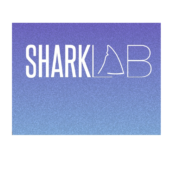SCIENCE ORGANIZATIONS
CSULB Shark Lab
Contact
About
The mission of the Shark Lab is to study the physiological and behavioral ecology of marine animals, emphasizing the effect of human activity on the ocean. At the lab we utilize and develop innovative technology to answer challenging questions important for the conservation and restoration of depleted populations. Since the lab was established in 1966 by Dr. Donald Nelson, over 50 scientific publications have been produced with data collected from around the world. The lab continues to further elasmobranch research and focuses on training the next generation of marine biologists
National Oceanic and Atmospheric Administration (NOAA)
Contact
About
The National Oceanic and Atmospheric Administration (NOAA) is an agency that enriches life through science, working to keep the public informed of the changing environments around them. NOAA’s mission focuses on science, service, and stewardship. NOAA’s goal is to understand and predict changes in climate, weather, oceans and coasts and to share this information and knowledge with others. NOAA’s dedicated scientists use cutting-edge research and high-tech instrumentation to provide citizens, planners, emergency managers and other decision makers with reliable information they need when they need it. The NOAA Ship Rainier uses AltaSea for docking space when in the Port of Los Angeles.
Natural History Museum Marine Biodiversity Center
Contact
About
The Marine Biodiversity Center is the Natural History Museum’s core facility for the curation of marine invertebrates. Collections come to the Museum from a variety of research projects and government agencies, documenting the particular diversity of the invertebrate fauna both regionally and worldwide. Preserving the specimens and the data associated with them is a challenging and ongoing responsibility of the Museum. These capabilities enhance and expand our ability to explore, discover, and monitor marine invertebrate diversity using modern molecular techniques. The Natural History Museum used AltaSea as it headquarters for a two-week expedition to the urban ocean waters of the Los Angeles region to dramatically improve our knowledge of Southern California marine biodiversity.
Ocean Exploration Trust
Contact
About
In partnering with the Nautilus Exploration Program, Ocean Exploration Trust aims to explore the ocean, seeking out new discoveries in the fields of geology, biology, maritime history, archaeology, and chemistry while pushing the boundaries of education, outreach, and technological innovation. Our expeditions center on scientific exploration of the seafloor, collaborating with the broader research community to identify priority regions and phenomena, and sharing our expeditions with explorers around the world via live telepresence. A major focus of OET is biological research of chemosynthetic ecosystems.
Southern California Coastal Ocean Observing System (SCOOS)
Contact
About
The Southern California Coastal Ocean Observing System (SCCOOS) is one of eleven regions that contributes to the national U.S. Integrated Ocean Observing System. The regional observing systems work to collect, integrate, and deliver coastal and ocean observations in order to improve safety, enhance the economy, and protect the environment. The principal goal of SCCOOS is to provide observations and products to a diverse stakeholder community of managers and planners, operational decision makers, scientists, and the general public. The five focus areas for SCCOOS are climate variability and change, coastal hazards, marine operations, science education and communication, and to monitor ecosystems, fisheries, and water quality.
Southern California Marine Institute (SCMI)
Contact
About
The Southern California Marine Institute (SCMI) consortium represents a strategic alliance of 23 major universities, colleges, and foundations in Southern California. SCMI’s mission is to foster marine research and education, focusing on urban impacts of the greater Los Angeles region on the coastal ocean. Our research projects include water quality monitoring in the Port of Los Angeles and NOAA Ship of Opportunity Program (SOOP). Member campuses conduct a multitude of research projects aboard our Research Vessel the R/V Yellowfin and in our laboratories. SCMI has a Memorandum of Understanding with AltaSea to sublease a warehouse on the 35 acre campus at City Dock 1.
USC Sea Grant
Contact
About
The Sea Grant Program at the University of Southern California is a federal-state-university partnership that integrates research, education, and outreach with a specific focus on the ‘urban ocean’ and solving issues arising out of managing people and natural resources in an intensely urban and developed coastline. USC Sea Grant funds marine and coastal research and communicates research results to leaders in government and local communities. USC Sea Grant contributes to solving the problems of the Urban Ocean, while recognizing the opportunities for coastal commerce, recreation, and improving the quality of life in coastal regions such as Southern California.









